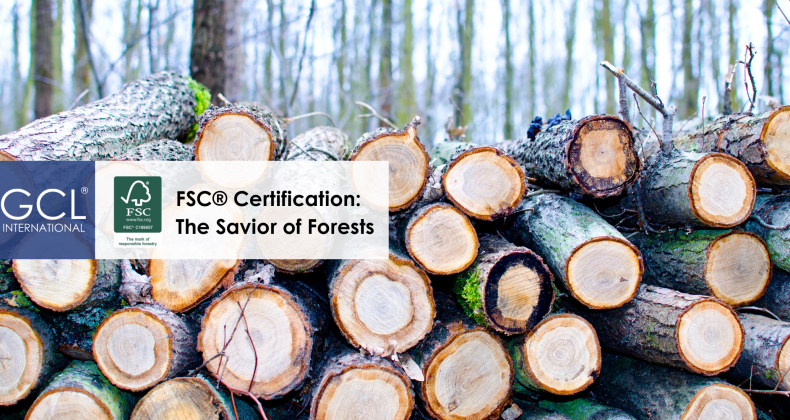Forests are vital for the health of our planet, providing numerous environmental benefits such as oxygen production, carbon sequestration, and habitat preservation. However, unsustainable logging practices have led to deforestation and habitat destruction, threatening biodiversity and contributing to climate change. To address these challenges, the Forest Stewardship Council (FSC®) has emerged as a savior of forests through its certification program. In this article, we will explore how FSC® certification promotes responsible forest management and plays a crucial role in preserving our valuable forest ecosystems.
Understanding the Forest Stewardship Council (FSC®)
The Forest Stewardship Council (FSC®) is an international organization dedicated to promoting responsible management of the world’s forests. It sets standards and certifies forest management practices that meet strict criteria for environmental, social, and economic sustainability. FSC® certification provides assurance to consumers that wood and wood-based products come from responsibly managed forests.
Environmental Benefits of FSC® Certification
Conservation of Forest Ecosystems: FSC® certification ensures that forests are managed in a way that maintains the integrity of ecosystems. It prohibits the conversion of natural forests to plantations, encourages the protection of high conservation value areas, and promotes the restoration of degraded forests. By safeguarding forest ecosystems, FSC® certification helps protect biodiversity, preserve wildlife habitats, and maintain the ecological balance.
Climate Change Mitigation: Forests play a crucial role in mitigating climate change by absorbing and storing carbon dioxide. FSC®-certified forests follow sustainable logging practices, including reduced clear-cutting and improved forest regeneration. These practices enhance the capacity of forests to sequester carbon, contributing to the global effort to combat climate change.
Protection of Water Resources: Forests are vital for maintaining water quality and regulating water flows. FSC® certification promotes responsible forest management practices that protect water resources, such as maintaining riparian zones, minimizing soil erosion, and avoiding the use of harmful chemicals. By safeguarding water sources, FSC®-certified forests contribute to the sustainable supply of clean water for communities and ecosystems.
Social and Economic Benefits of FSC® Certification
Respect for Indigenous Peoples’ and Local Communities’ Rights: FSC® certification recognizes and upholds the rights of indigenous peoples and local communities who depend on forests for their livelihoods and cultural heritage. It ensures their meaningful participation in forest management decisions and respects their land tenure rights. FSC®-certified forests support sustainable livelihoods, promote social inclusion, and foster community development.
Fair Labor Practices: FSC® certification requires forest operations to adhere to internationally recognized labor standards. It promotes fair wages, safe working conditions, and the protection of workers’ rights. By prioritizing fair labor practices, FSC® certification contributes to the well-being and empowerment of forest workers, enhancing social equity in the forest industry.
Economic Viability: FSC® certification encourages responsible forest management that balances environmental and social considerations with economic viability. Certified forests provide a sustainable supply of timber and non-timber forest products, ensuring the long-term economic benefits for forest-dependent communities and industries. FSC®-certified products also enjoy market preference from environmentally conscious consumers, enhancing market access and profitability.
The Power of Consumer Choice
One of the key drivers of change in the forest industry is consumer demand for sustainable and responsibly sourced products. By choosing FSC®-certified products, consumers actively support responsible forest management and drive market transformation. The FSC® label on a product indicates that it comes from a responsibly managed forest and meets stringent sustainability criteria. Consumer choice has the power to incentivize companies to adopt sustainable practices and create a positive impact on forests worldwide.
Embracing the Future with FSC® Certification
FSC® certification has proven to be a transformative force in the forest industry, bringing together stakeholders from environmental, social, and economic spheres. It provides a robust framework for responsible forest management, promoting biodiversity conservation, climate change mitigation, and the well-being of forest-dependent communities. By choosing FSC®-certified products, we contribute to the protection and preservation of forests, ensuring their availability for future generations.
FAQs (Frequently Asked Questions)
Can I choose any certification body for FSC® certification?
-While you have the flexibility to choose a certification body for FSC® certification, it is essential to select an accredited body that meets the FSC®’s requirements. Accredited bodies, such as GCL International Ltd, ensure compliance with the necessary standards and provide credible certification services.
What factors should I consider when selecting a certification body for FSC® certification?
-When choosing a certification body, consider their accreditation, expertise in forest certification, reputation, customer service, and international reach. It is also beneficial to seek recommendations from other organizations that have undergone FSC® certification.
How can GCL International Ltd support me beyond FSC® certification?
-GCL International Ltd offers a range of additional services, including training, Auditing, and verification services. These services can help you enhance your sustainability practices, implement improvements, and stay up-to-date with the latest requirements and trends in sustainable forest.



